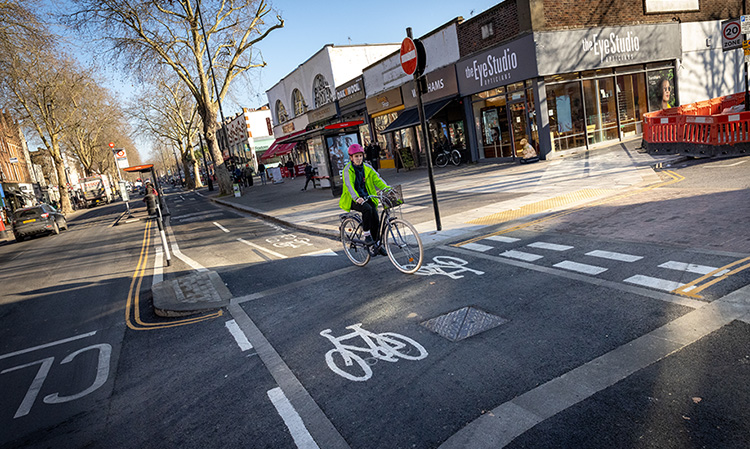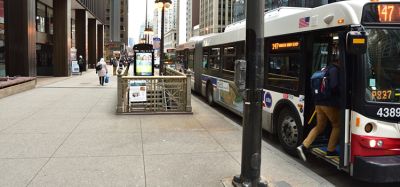New TfL data highlights need for action on London’s roads to prevent death and serious injury
- Like
- Digg
- Del
- Tumblr
- VKontakte
- Buffer
- Love This
- Odnoklassniki
- Meneame
- Blogger
- Amazon
- Yahoo Mail
- Gmail
- AOL
- Newsvine
- HackerNews
- Evernote
- MySpace
- Mail.ru
- Viadeo
- Line
- Comments
- Yummly
- SMS
- Viber
- Telegram
- Subscribe
- Skype
- Facebook Messenger
- Kakao
- LiveJournal
- Yammer
- Edgar
- Fintel
- Mix
- Instapaper
- Copy Link
Posted: 26 May 2023 | Intelligent Transport | No comments yet
Despite significant progress, TfL’s new report on road traffic casualties in the capital during 2022 shows that urgent action is needed to achieve the Mayor’s Vision Zero goal of eliminating death and serious injury from the transport network.


Credit: Transport for London
Transport for London (TfL) has announced that London is witnessing a concerning rise in road fatalities and serious injuries, approaching pre-pandemic levels, despite previous progress. This resurgence has devastating consequences for affected families, friends and communities, necessitating collective action to achieve the Mayor’s Vision Zero target of eliminating death and serious injury by 2041. TfL is actively working with boroughs, the police and other partners to fulfil this objective.
Excluding the pandemic affected years of 2020 and 2021, 2022 recorded the lowest fatality count on record, with 101 lives tragically lost. Compared to the Mayor’s Transport Strategy baseline of 2005-09, there has been a 38% reduction in the overall number of people killed or seriously injured, with child casualties down by 63%. London consistently outperforms the national average in this area.
While road casualties declined during the pandemic in 2020 and 2021 due to reduced traffic levels, 2022 witnessed an increase in fatalities and injuries across all modes of transportation as London embarked on its post-pandemic recovery. The number of individuals killed or seriously injured rose by 11%, reaching 3,974 in 2022 compared to 3,580 in 2021.
Vulnerable road users such as pedestrians, cyclists and motorcyclists accounted for 80% of all casualties in 2022. Cycling fatalities dropped by 58%, but serious injuries increased by 42% compared to the 2005-09 baseline, despite an 88% increase in cycling journeys. This highlights the need for ongoing implementation of safe cycling infrastructure, lower speeds and initiatives like Direct Vision Standards (DVS).
Collisions involving cars remain the primary concern, contributing to 65% of all casualties. Speeding remains the greatest risk, accounting for about half of fatal collisions in 2022. TfL is committed to expanding its speed limit reduction programme, engaging local communities to introduce 65km of new 20mph speed limits.
Although collisions involving London Buses have significantly decreased compared to the 2005-09 baseline (54% reduction), there had been a 56% increase in 2022 due to increased bus journeys. TfL is actively working to enhance bus safety, including improvements to bus interiors outlined in the forthcoming Bus Safety Strategy. The Bus Safety Innovation Challenge will also be launched to explore innovations that reduce injuries to bus passengers.
TfL awards London’s boroughs £63 million to make streets safer
TfL’s Bus Safety Programme ensures compliance with safety standards for new buses, incorporating technologies such as Intelligent Speed Assistance, Camera Monitoring Systems, Acoustic Vehicle Alerting Systems, Advanced Emergency Braking, and redesigned bus fronts.
Walking and Cycling Commissioner, Will Norman, said: “This data shows that while significant progress is being made, further action is needed to eliminate deaths and serious injuries from London’s streets. That’s why we have accelerated our 20mph speed limit programme, are tightening the Direct Vision Safety standard for HGVs and working with the boroughs to deliver high-quality cycle routes.”
Lilli Matson, TfL’s Chief Safety, Health and Environment Officer said: “The latest casualty stats from 2022 show that it is imperative that we continue to do all we can to meet our Vision Zero goal of eliminating deaths and serious injury from London’s roads. Protecting everyone on the road is a priority for us.”
Plans are in place to lower speeds on an additional 140km of roads by May 2024, building on the success of the 20mph speed limits introduced in the central London Congestion Charging Zone, which have reduced collisions by 25%.
Furthermore, TfL collaborates with the Metropolitan Police to enhance its capacity for enforcing speed limits, with the aim of addressing a million speeding offenses by 2024/2025. In 2022/2023, the Met Police enforced around 620,000 speeding offenses, reflecting a 35% increase from the previous year.
If you liked this, you may also be interested in:
▶ TfL launches new priority seating to enhance accessibility on buses
▶ Dubai’s RTA launches second phase of Smart Pedestrian Signals project
Related topics
Active travel, Passenger Experience, Public Transport, Transport Governance & Policy, Vehicle & Passenger Safety
Related modes
Bikes & Scooters, Bus & Coach, Walking
Related cities
London
Related countries
United Kingdom
Related organisations
Transport for London (TfL), UK Government
Related people
Lilli Matson, Will Norman








